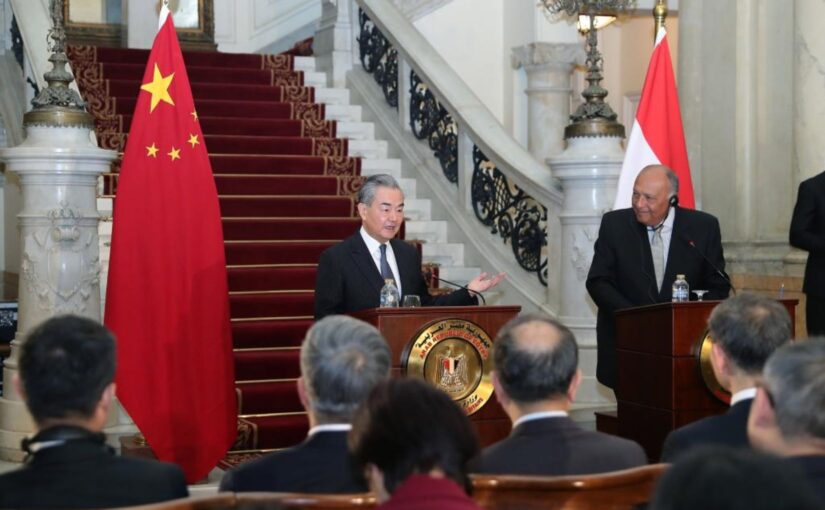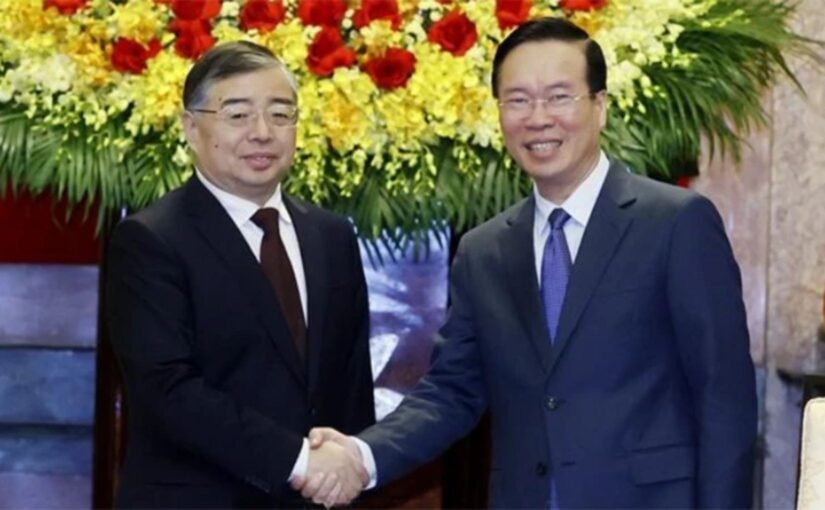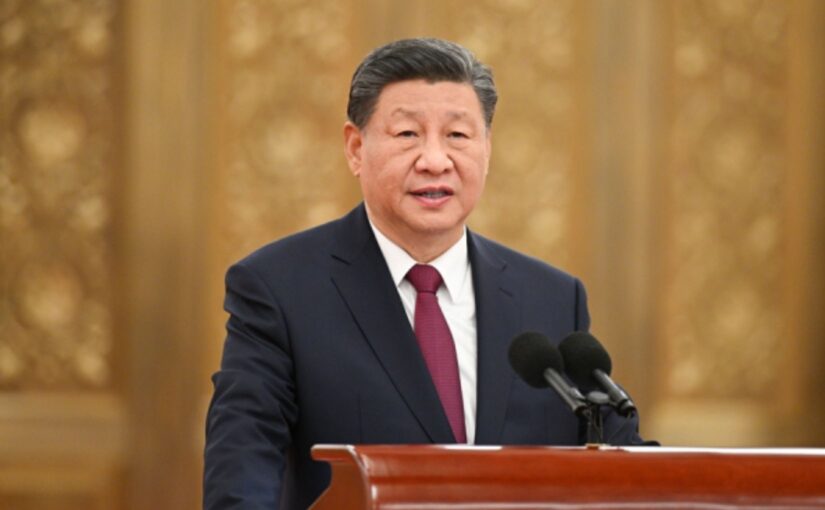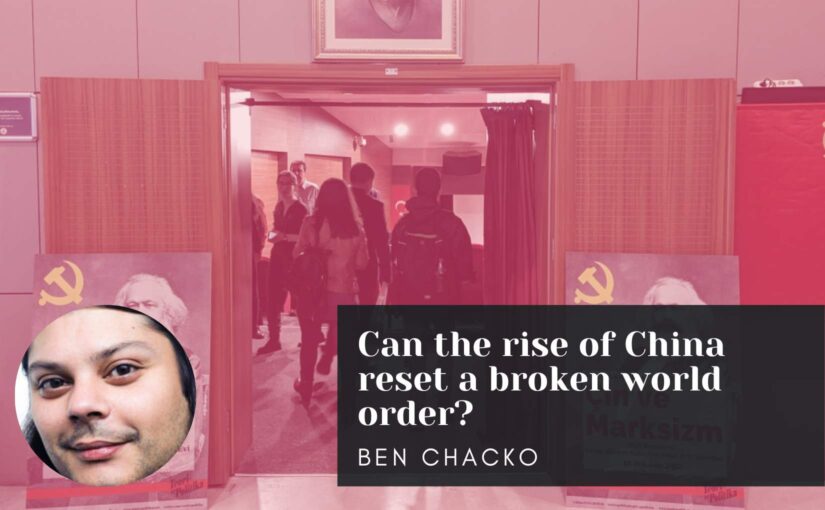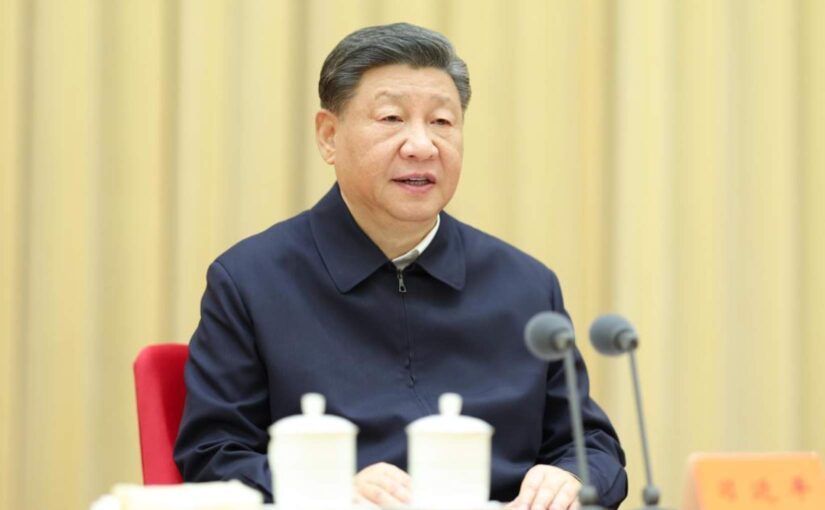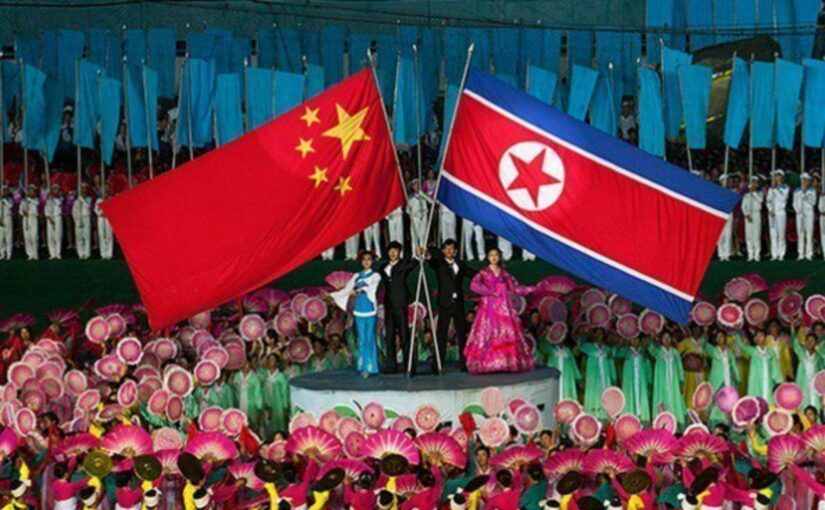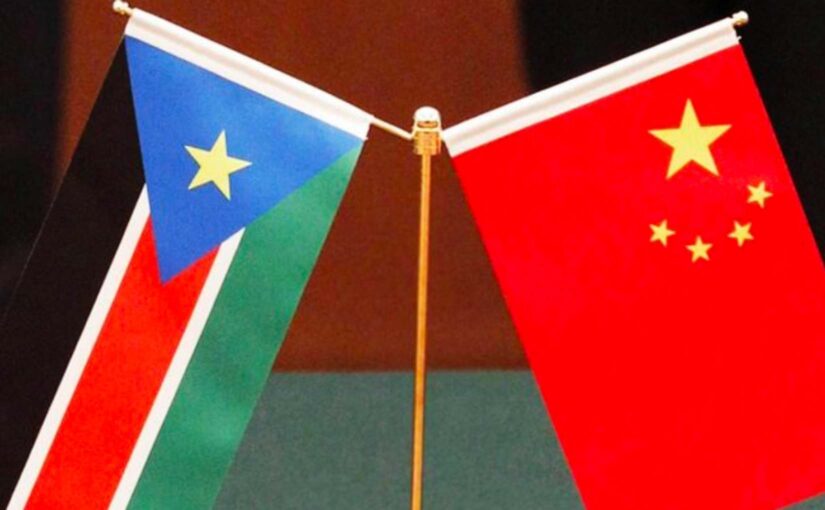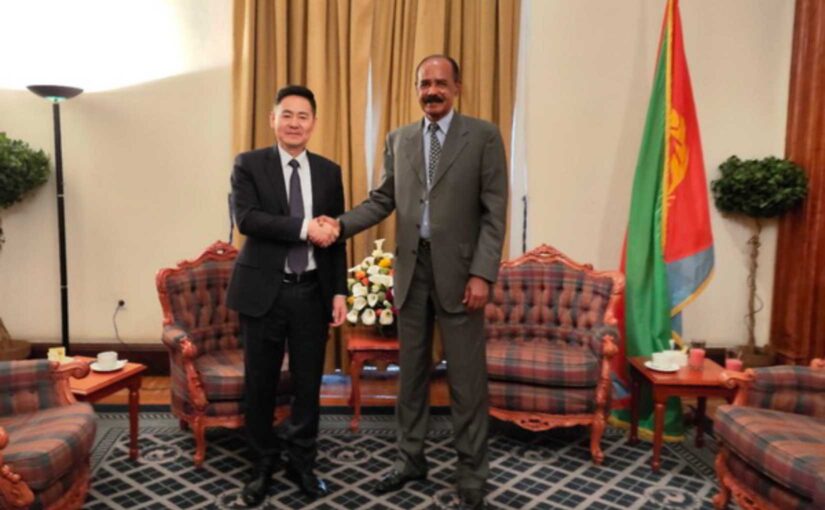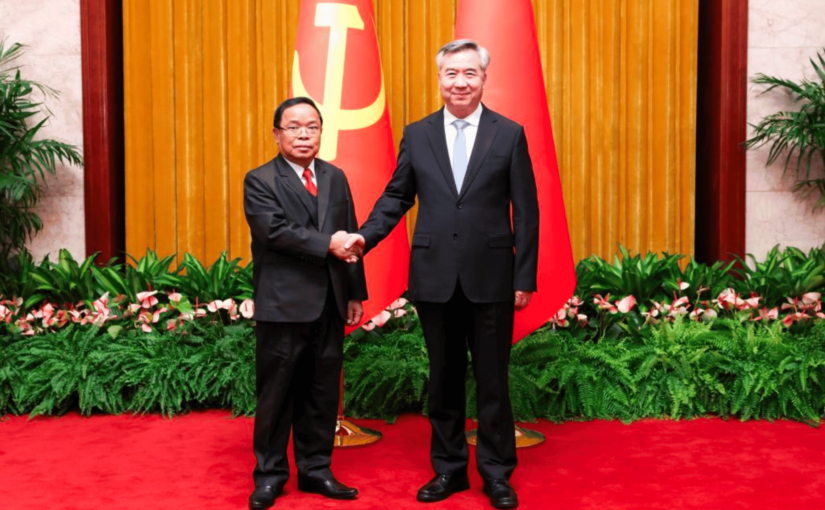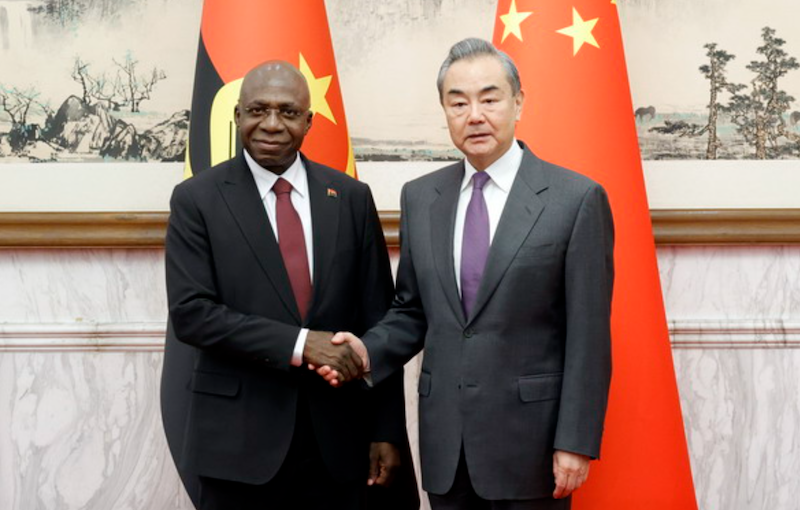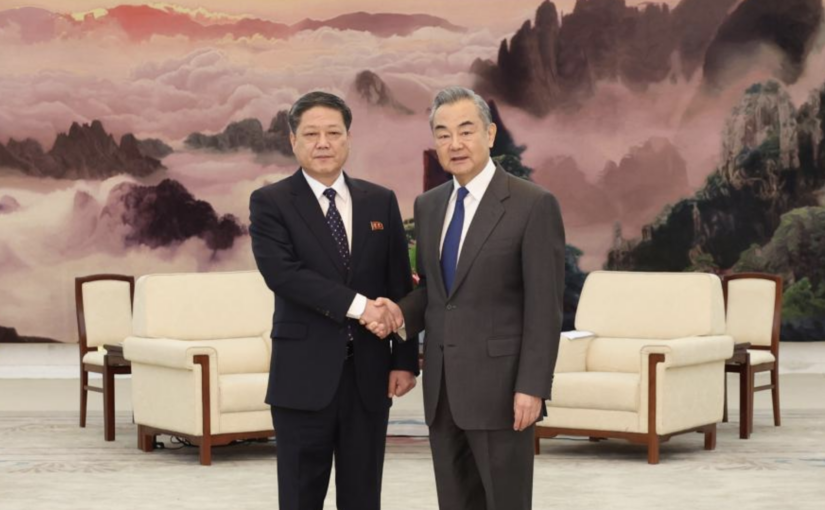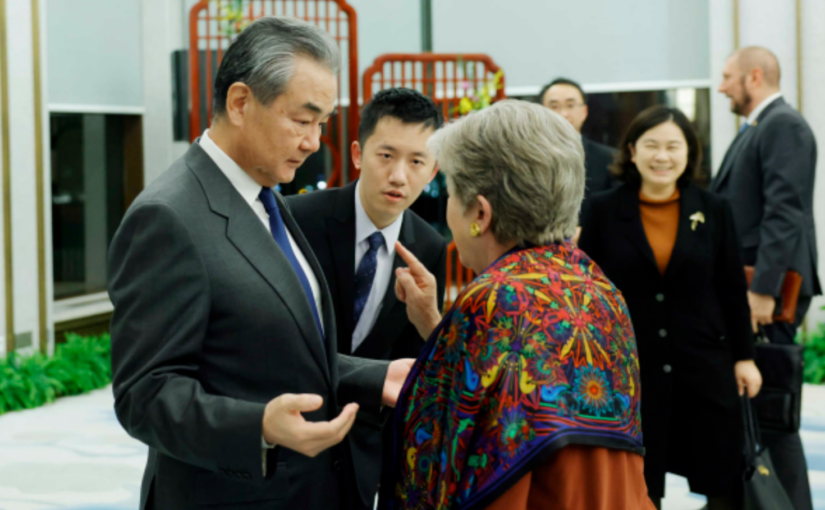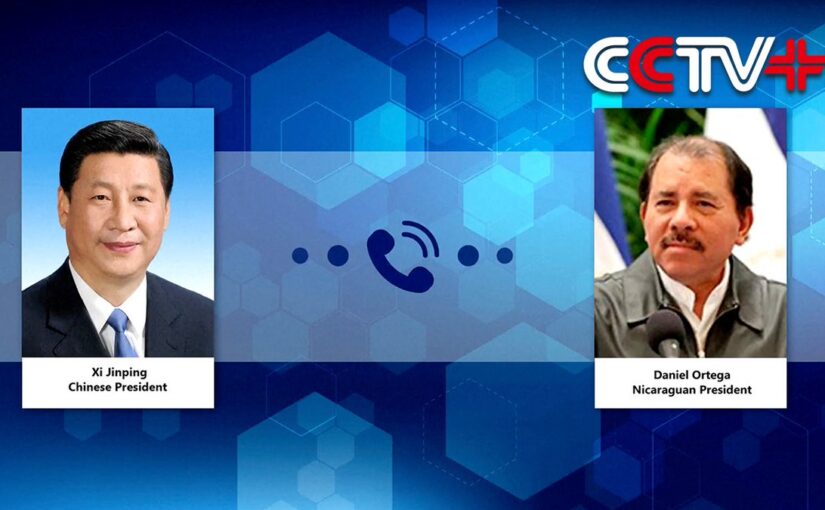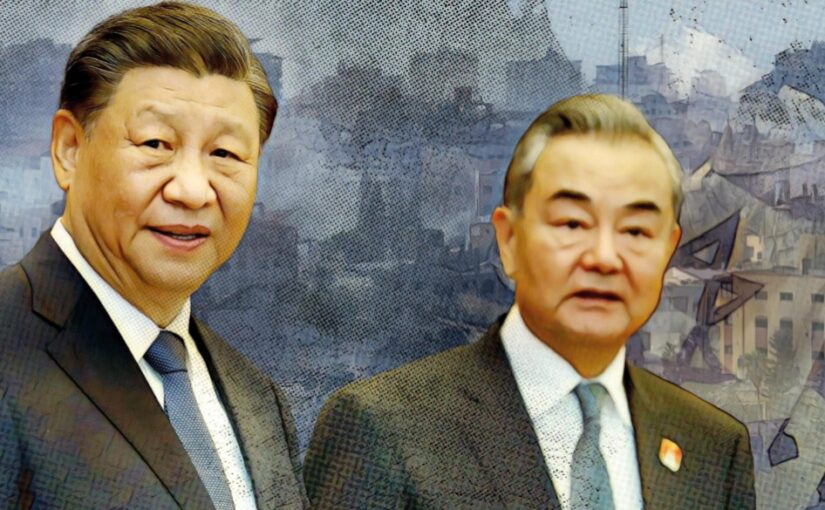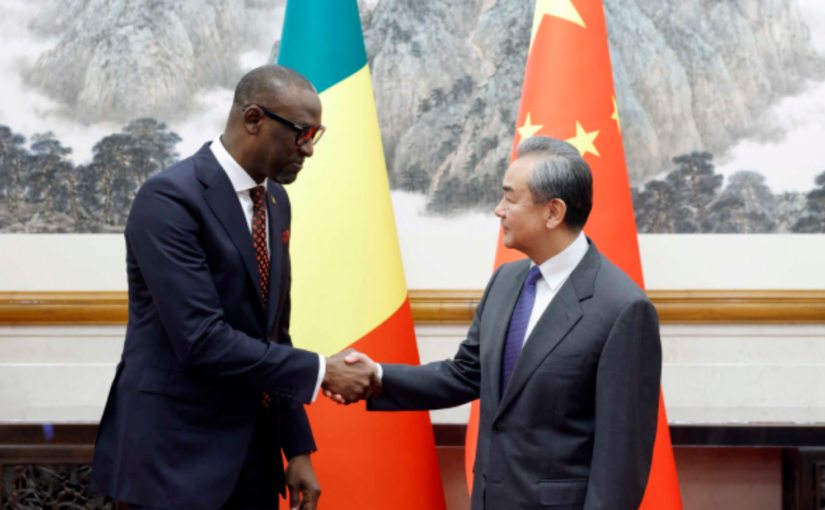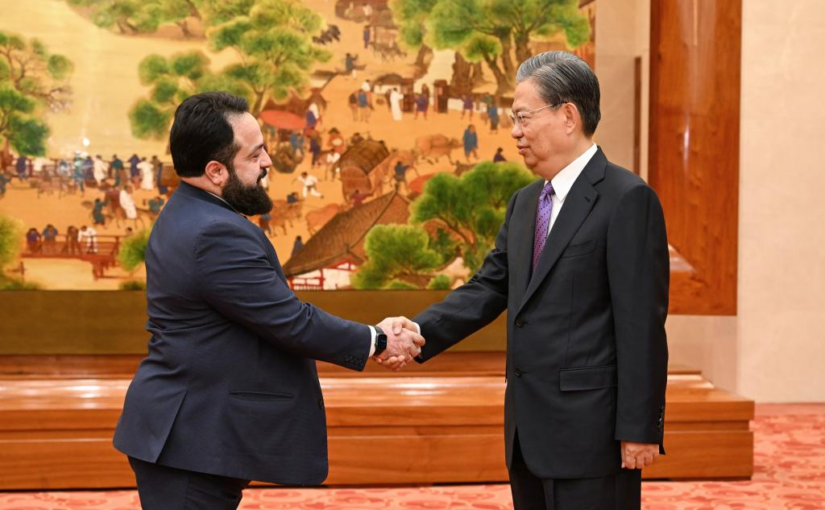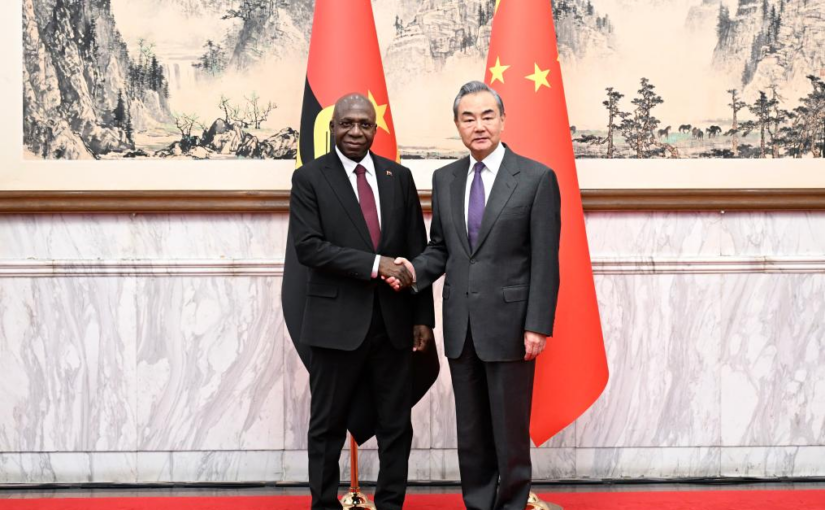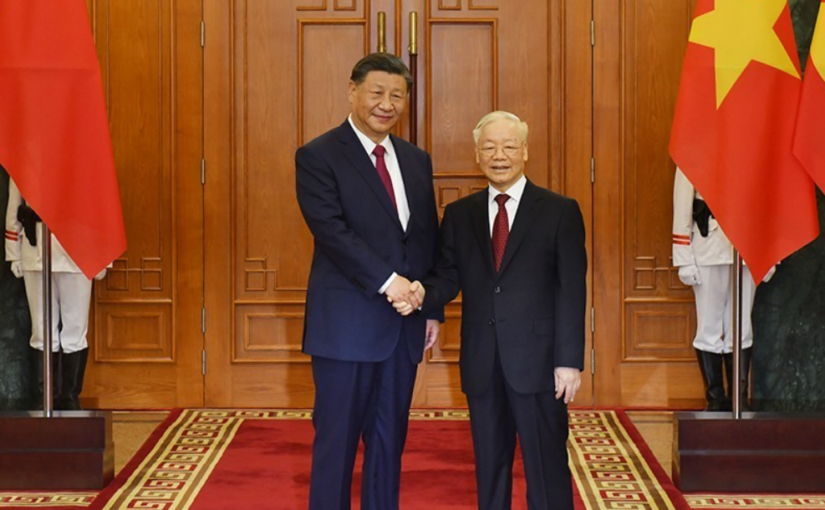Chinese Foreign Minister Wang Yi began a visit to Africa on January 13, visiting Egypt, Tunisia, Togo and Cote d’Ivoire till January 18. This marks the 34th consecutive year that a Chinese foreign minister makes Africa the first destination for his overseas visits. Wang Yi’s itinerary this time also takes him to Brazil and Jamaica, January 18-22.
On January 14, Wang Yi met in Cairo with Egyptian President Abdel-Fattah al-Sisi, where he stressed the importance of implementing an immediate ceasefire in Gaza.
For his part, President Sisi congratulated China on its great development achievements under the leadership of President Xi Jinping and its increasingly important role in international affairs. China, he said, is a great country, and no country or force can stop China’s progress.
Expressing his gratitude to China for its strong support for Egypt’s economic and social development, Sisi said that the joint construction of the Belt and Road Initiative (BRI) by Egypt and China has achieved remarkable results.
He also thanked Chinese enterprises for their “important contribution” to Egypt’s national construction and economic development and welcomed more Chinese investments in Egypt.
Noting that Egypt is an important Arab, African, Islamic, and developing country, Wang once again congratulated Egypt on becoming a new member of the BRICS. China, he added, is willing to work with Egypt to promote a more equal and orderly multipolarisation as well as a universally beneficial and inclusive economic globalisation, and jointly build a community of shared future for humanity.
The same day, Wang also met with Egyptian Foreign Minister Sameh Shoukry.
Shoukry said that Egypt is proud of being the first Arab and African country to have forged diplomatic relations with the People’s Republic of China, and it is a great pleasure to make Egypt the first stop of the Chinese foreign minister’s first visit abroad again in a new year, which demonstrates the solid and profound friendship between Egypt and China.
Egypt adheres to the one-China principle, unswervingly supports China in safeguarding national unity, stability and development, as well as regarding China’s legitimate position on issues related to Xinjiang and Hong Kong.
Wang noted that the China-Egypt friendship has brought tangible benefits to the two peoples and set a model for South-South cooperation.
Both sides, he continued, should promote cooperation in various fields, including new energy, aerospace, agricultural science and technology, digital economy, artificial intelligence, and medical and health care. China encourages Chinese enterprises to invest in Egypt, more Chinese citizens to visit Egypt, and stands ready to import more high-quality products from Egypt.
He pointed out that both China and Egypt, as representatives of major developing countries and emerging forces, pursue independent foreign policies and support genuine multilateralism. In a turbulent and intertwined world, China and Egypt are important factors for maintaining strategic stability. China is ready to work with Egypt to support an equal and orderly multipolar world and economic globalisation that benefits all, promote the development of global governance in a more just and reasonable direction, and safeguard the common interests and legitimate rights of developing countries.
In a joint press conference of the two foreign ministers, Wang Yi called for the convening of a more comprehensive, authoritative, and effective international peace conference to formulate a road map for implementing the two-state solution to settle the Israeli-Palestinian conflict.
He also put forward a four-point proposal for resolving the conflict in Gaza.
First, the overriding priority now is to end the Gaza conflict as soon as possible. The international community must take immediate action and focus all efforts on achieving a ceasefire, protecting the safety of civilians, and avoiding the loss of more lives.
Second, it is a moral responsibility to ensure the urgent delivery of humanitarian aid to the Gaza Strip. It is necessary to establish a humanitarian relief mechanism as soon as possible to ensure the rapid, safe, barrier-free and sustainable delivery of humanitarian aid to the Palestinians in Gaza. China has decided to provide its third batch of humanitarian aid to Gaza.
Third, the will of the Palestinian people must be fully respected regarding the future arrangements of Gaza. “The Palestinians governing Palestine” is the basic principle for discussing the future of Gaza. Strengthening the power of the Palestinian Authority and supporting Palestine’s internal reconciliation is the realistic approach to ensuring “the Palestinians governing Palestine” principle.
Fourth, the essence of settling the Palestinian issue is to correct historical injustice. Justice must be returned to the Palestinian people as soon as possible, and a political settlement must be achieved in accordance with relevant UN resolutions and the Arab Peace Initiative by establishing an independent and sovereign Palestinian state based on the 1967 borders, with East Jerusalem as its capital.
Wang also noted that Egypt is a major Arab, African, Islamic, and developing country. This year, China will host the 10th Ministerial Conference of the China-Arab States Cooperation Forum, and the new session of the Forum on China-Africa Cooperation. China looks forward to working with Egypt to lead China-Arab States and China-Africa collective cooperation to a new level, and to build a model of high-quality South-South cooperation.
The Chinese Foreign Minister also met in Cairo with the League of Arab States Secretary-General Ahmed Aboul Gheit.
The Arab League has become the first regional organisation to sign a joint statement with China aimed at further implementing the Global Civilisation Initiative, Wang noted, adding that China is willing to work with the Arab side to push for new progress in China-Arab practical cooperation.
He said that this year marks the 20th anniversary of the establishment of the China-Arab States Cooperation Forum, and that over the past two decades, the forum has made important contributions to promoting the development of China-Arab relations and has become a “prestige brand” for China-Arab collective cooperation.
Gheit said that the Arab League firmly adheres to the one-China principle and “one country, two systems,” opposes using double standards on issues related to human rights and Xinjiang and stands against interference in China’s internal affairs.
“We deeply appreciate China for upholding justice on the Palestinian question, and for its important contributions to ceasefire, an end to violence, de-escalation and the protection of civilians. We believe that China will continue to play an indispensable role,” he added.
China issued joint statements with both Egypt and the League of Arab States on the question of Palestine.
The joint statement with Egypt demanded an immediate and comprehensive ceasefire and opposed and condemned all violations of international law, including international humanitarian law, as well as of international human rights law, including the forced individual and collective transfers and forcible transfers of the Palestinian population from their land.
That with the League of Arab States demanded that: “The UN Security Council should heed the voices of Arab and Islamic countries and other countries that oppose Israel’s continued war against civilians in Gaza and take binding measures to ensure that international security and peace are properly assured,” adding that: “Any arrangement concerning the future and destiny of Palestine should follow the principle of ‘Palestinians governing Palestine’. Efforts should be made to achieve intra-Palestinian reconciliation and the support of both China and Algeria for an inclusive national dialogue with the participation of all Palestinian factions should be underlined in order to achieve the above-mentioned goals.”
The two sides also expressed “deep concern over the recent escalation of the situation in the Red Sea and stressed the need to respect Yemen’s national sovereignty and territorial integrity, while ensuring the safety of international commercial routes in the Red Sea.”
“The Arab side highly appreciates China’s extensive efforts to calm the conflict in Gaza, achieve a ceasefire and support the just cause of the Palestinian people, and appreciates China’s Position Paper on the Settlement of the Palestinian-Israeli Conflict. The two sides are willing to continue to strengthen communication and coordination, make unremitting efforts to achieve a ceasefire in Gaza and end the grave humanitarian crisis suffered by more than two million Palestinian people, and work to end the occupation and promote a comprehensive, just and lasting settlement of the Palestinian question.”
The following articles were originally published by the Xinhua News Agency and the Chinese Foreign Ministry. The two joint statements have been machine translated and lightly edited by us.
Egyptian president, Chinese FM discuss bilateral ties, Gaza conflict
CAIRO, Jan. 14 (Xinhua) — Egyptian President Abdel-Fattah al-Sisi held a meeting with visiting Chinese Foreign Minister Wang Yi on Sunday, during which the two sides discussed the ways to strengthen bilateral ties and stressed the importance of implementing an immediate ceasefire in the Gaza Strip.
Continue reading China puts forward four-point proposal for ending Gaza conflict